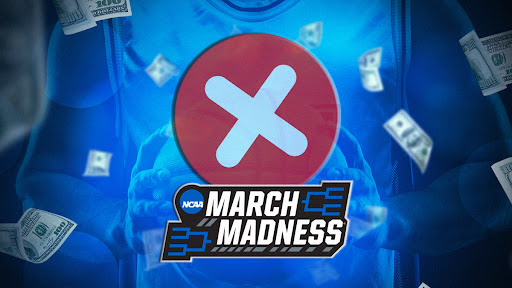There is nothing better than March Madness. Once the teams are announced on Selection Sunday, there is a massive amount of information regarding betting tips, strategies, and trends regarding how to bet on the March Madness games. Some tips and trends can lead you to profits, but others may lead you to forfeit your kids’ college funds.
Follow our lead while we show the do’s and don’ts of betting the big games.
Introduction
Before we get into the good stuff, let’s briefly introduce what March Madness is all about.
The NCAA Tournament is one of the most exciting events on the calendar, also known as March Madness. It starts on Selection Sunday when all participating teams are announced and the brackets are finalized.
The NCAA Tournament is a single-elimination tournament of 68 teams competing for the National Championship.
Tournament Schedule:
- First Four: March 14-15.
- First round: March 16-17.
- Second round: March 18-19.
- Sweet 16: March 23-34.
- Elite Eight: March 25-26.
- Final Four: April 1.
- NCAA Championship Game: April 3.
3 Things to Avoid When Betting
Avoid betting on favorites blindly
Don’t assume that all the higher seeds will always win. Lower seeds at No. 10, No. 11, No. 12, and even No. 13 can be solid wagers as underdogs, especially if they’re champions from mid-major conference tournaments. These schools are champs for a reason, and the gap between conferences is smaller than we think. In 2021, of the 32 first-round games last year, 1/3 of the games’ lower seeds won outright. In last year’s tournament, lower seeds won 16 of 48 games in the first two rounds.
For instance, history suggests that the Second Round has not been too kind to #2 Seeds. More #2 Seeds have lost in the round of 32 than any other round in the tournament. More recently, only twice since 1997 that all four No. 2 seeds advanced to the Sweet 16.
In 2022, #2 Seed Kentucky lost in the First Round, and another #2 Seed (Auburn) lost in the round of 32.
Ignoring Bankroll Management
Bankroll management might be crucial in becoming a successful sports bettor. Poor money management is the number one reason people go broke or end up in debt, whether in everyday life or when trying to win long-term sports betting.
You want to stay consistent with how much you bet on each play. Ideally, you should bet 1% to 5% of your bankroll on each bet. Typically 3% is a good starting point. For example, if your starting bankroll is $1000, you should bet $30 on each bet. Using this system will help you ride out the ups and downs of sports betting and will help you sustain your bankroll through tough losing streaks. This takes discipline because many people like to chase their losses and double down on the next game to help recover their losses earlier in the day.
Chasing your losses is another no-no. Chasing your losses or ignoring proper bankroll management is easy today because everything is in your hand with all these new betting apps. Just because you lost a bet or had a losing day does not mean you have to chase your losses by betting on the primetime or last game of the night. If it’s easier to create a game plan before all the games start, do that. Write down the games you like for that day and stick with them, whether they win or lose.
Rely Solely on Expert Picks
When putting your hard-earned money on the line, it is always wise to do your research. While some experts research and crunch information before giving out their picks, a lot throw our teams and odds just for content creation. In a time when social media is everywhere, people just use random content to gain a following, and tailing their picks could land you with an empty wallet.
I like to utilize Kempom.com as a resource when analyzing matchups and information.
For example, using Kenpom’s rankings, 19 of the past 20 champions were ranked in the top 20 in adjusted offensive efficiency while ranking inside the top 20 in adjusted defensive efficiency.
Once you’ve researched and know who you want to bet on, you can compare your picks and information to experts’ picks to see if they match up or if you are overlooking anything. But it’s always best to research first rather than blindly tailing experts online.
Conclusion
Remember, March Madness is meant to be fun, have fun with your bets and brackets but remember to research your picks, use proper bankroll management and try to be the lucky one who finds this year’s Cinderella team.


